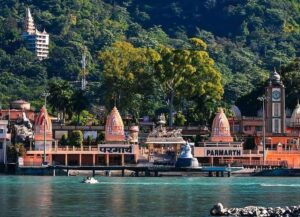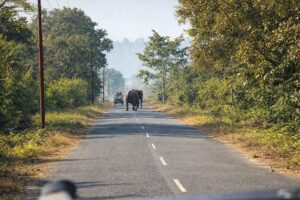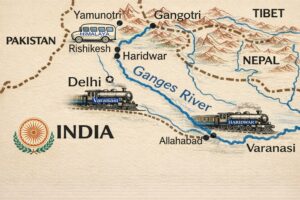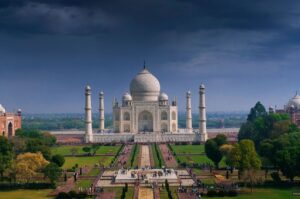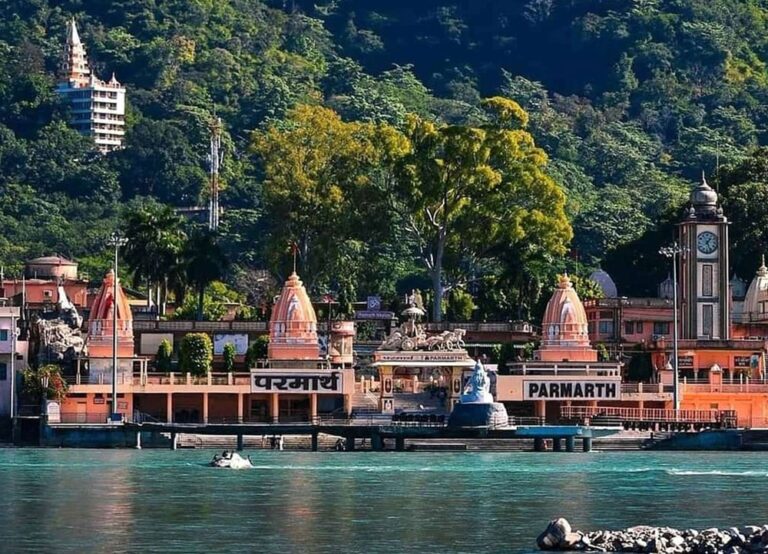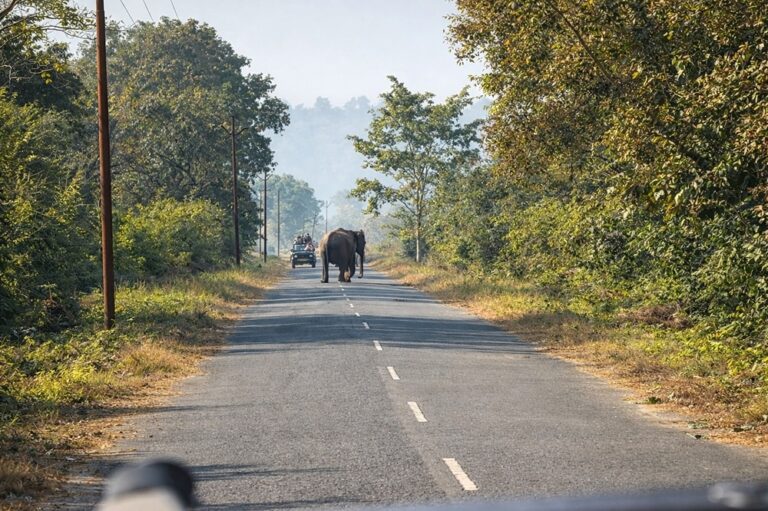Camping & Its effect on eco-system
- Are We Lighting The Bonfire Or Is The Bonfire Burning Our Home The entire large meadows that make Dhauladhar mountain the beauty that it is, seemed different than what it was a decade ago.
- Today those large meadows are no longer filled with lush green grass, and the air no longer tells the tales of clean surroundings and pristine areas. Instead, it is covered with cans, water bottles, beer bottles, and plastic all scattered and littered over the perfectly cut grass.
- It is almost like a dumpster, complete with a huge pile of black plastic bags laid on top of one another filled with trash. The guide- a man who has been doing this trek for more than 15 years- looked at it and lamented. “I have been trekking here for forever, but in the last five years the area has become a dumpster, Dhauladhar is not Dhauladhar anymore” he sighed.
- However, this is not the story of just one mountain range or just one area that has been violated and attacked. It is the story of countless large meadows or wonderful hills tops that have now been corrupted due to the onslaught of the irresponsible campers. Now Rishikesh losing its natural charms and beauty.
- The idea of camping at these lovely locations may seem alluring, but what we fail to realize are the disastrous consequences that camping is having on our environment.
No More Clean Fields In The Himalayas
- The Himalayas is popular for its alluring camping grounds. The lush green field, the enchanting forests, the crystal clear water- everything is perfect. Even the wildlife is so rare that everyone tries to catch a glimpse of them. Yet, over the years, as camping has increased, the cleanliness of the place has decreased. Everywhere people have littered with their non-biodegradable plastic waste.
- From chips packets to plastic bottles, which are supposedly banned in the region. These wastes take forever to decompose and harm the environment greatly. At times even the wildlife of the region starts ingesting these wastes, which in turn negatively affect their body.
- In Rishikesh, the sudden fall in their wildlife population has been attributed to the harmful effects of camping and the recklessness of campers.

Non- Biodegradable
- The most common wastes that the campers litter around are tin cans, aluminum cans, glass bottles, styrofoam cups, and plastic. All of these wastes take a very long time to decompose and keep realizing harmful chemicals. Plastics take over 500 years, whereas glass bottles don’t decompose at all.
- While camping, it might seem like a fun and exciting idea to light a bonfire and sip into the chilled beer in that glass bottle as you pass the night away under the stars. But, these bottles are the ones that remain behind even in the morning, just lying there littered on the grass. As the night of fun is over, so is the use of these glass bottles.
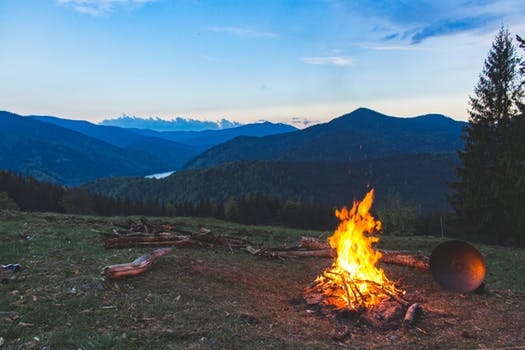
The Bonfire
- This issue is something that can both be harmful to the cameras and the forest they are camping in. Bonfires have become an essential part of camping, it has become impossible to imagine camping without lighting that glowing fire, and then singing around it.
- Yet, not every camping site has a designated area for lighting fires. Over-enthusiastic campers try and light it anywhere, some of which may lead to forest fires. This can cause huge damage to the tall dense trees, to the clean air, to the wildlife in the area, and to the campers. Sometimes people even use pans to cook and start dumping the grease in the nearby water body, or anywhere they find suitable.
The Local Plants
- Every place or every large field is not a camping site. Just because a place looks heavenly and perfect for camping doesn’t mean it is entitled to be a spot fit for camping. But, in the search for these photogenic campsites and perfect spots, campers have started pitching their tent anywhere they feel like. In doing so they trample on the native flora and completely disregard the surrounding. This impacts the soil of that region, which is not meant for such activities. In this way, you will find a meadow that was once brimming with life is now just a dead piece of dirt.
Water Pollution
- India is blessed with serene lakes and gushing streams. In India, you will find magical brooks just passing through some lovely meadows. With such beauty, it is no doubt that sites with streams or any water body near it, as popular camping haunts. But, while campers love water, they have no respect for it.
- Over time some amazing streams in India have been destroyed due to the plastic waste and other kinds of waste that is dumped there. People even wash their dishes in these water bodies, which makes them even dirtier. The magnificent streams that were Ince pristine, now carry the dirt of a thousand campers. These water bodies not just add beauty to the area, but also gives sustenance to the animals who live there. The wildlife of that area is dependent on that water body. If we destroy it, then they will have nowhere else to go to satisfy their thirst.
- This has been the case in Ladakh especially. Ladakh is known for its amazing treks that go through awe-inspiring valleys and pass resplendent streams. During these treks, the trekkers set up camp near these water bodies. As of now, Ladakh is battling a huge crisis of keeping these streams clean from the attack of the campers.
- There are certain beaches in India also that allow camping. This has led to the destruction of what once used to be a clean sandy beach. People leave their waste behind, the moment they are done with camping in that region.
The Loud Music
- Thanks to countless movies, the idea of singing or playing music at night while the bonfire is glowing with all its glory, has become the new norm. Playing music and getting into a trance as you look at the starry sky above you, might be enchanting, but one has to realize the problems that come with it.
- Loud music at night is not greatly desired by the animals that live in that area. This disturbs them greatly, and many tend to run away from the area. Some animals may even die if the music is too old for them to handle.
How To Be A Responsible Camper
- We are merely a visitor when we go out to camp. We are a guest in that area, and it is our job to keep the place neat and clean, so as to not upset the hosts. To do so, there are a few things that we can keep in mind to be more environmentally conscious while camping.
- Avoid camping near water bodies. While it is extremely alluring to camp neat these lovely flowing streams, but we must avoid it. This is the only sustenance for those wild animals if we want them to prosper we need to leave the water bodies alone.
- Don’t get anything in plastic. If you really wish you eat food which is found in plastic bags, then after buying it immediately empty the plastic bag, take out the contains and wrap it in a newspaper or any other paper. This will help you avoid plastic. Also, bring your own water bottles which are not plastic, and which you can take home with you.
- If you really wish to drink alcohol, then pour it in a flask and get it to the camp. Make sure you take the flask home and not litter with you.
- Carry a garbage bag with you where you can dump everything that you have used. After you are done camping carry that bag home or carry it till you see a designated dustbin, where you can dump this bag.
- Don’t keep increasing the volume of your music system. Respect your surroundings and keep the noise to a bare minimum.
Conclusion
- Make sure that you do not indulge in any activity that will harm the nature around you. Do not start carving on rocks or trees, or just mindlessly plucking flowers
- Camping is a great and fun activity. There is no greater joy than to be out in the wild and witnessing the pleasures of nature. Yet, it is important to respect the nature that we so desire to enjoy. If we don’t preserve our own home, who else will. It is high time now to be cautious than to lose this wonderful bounty of nature and regret later.



